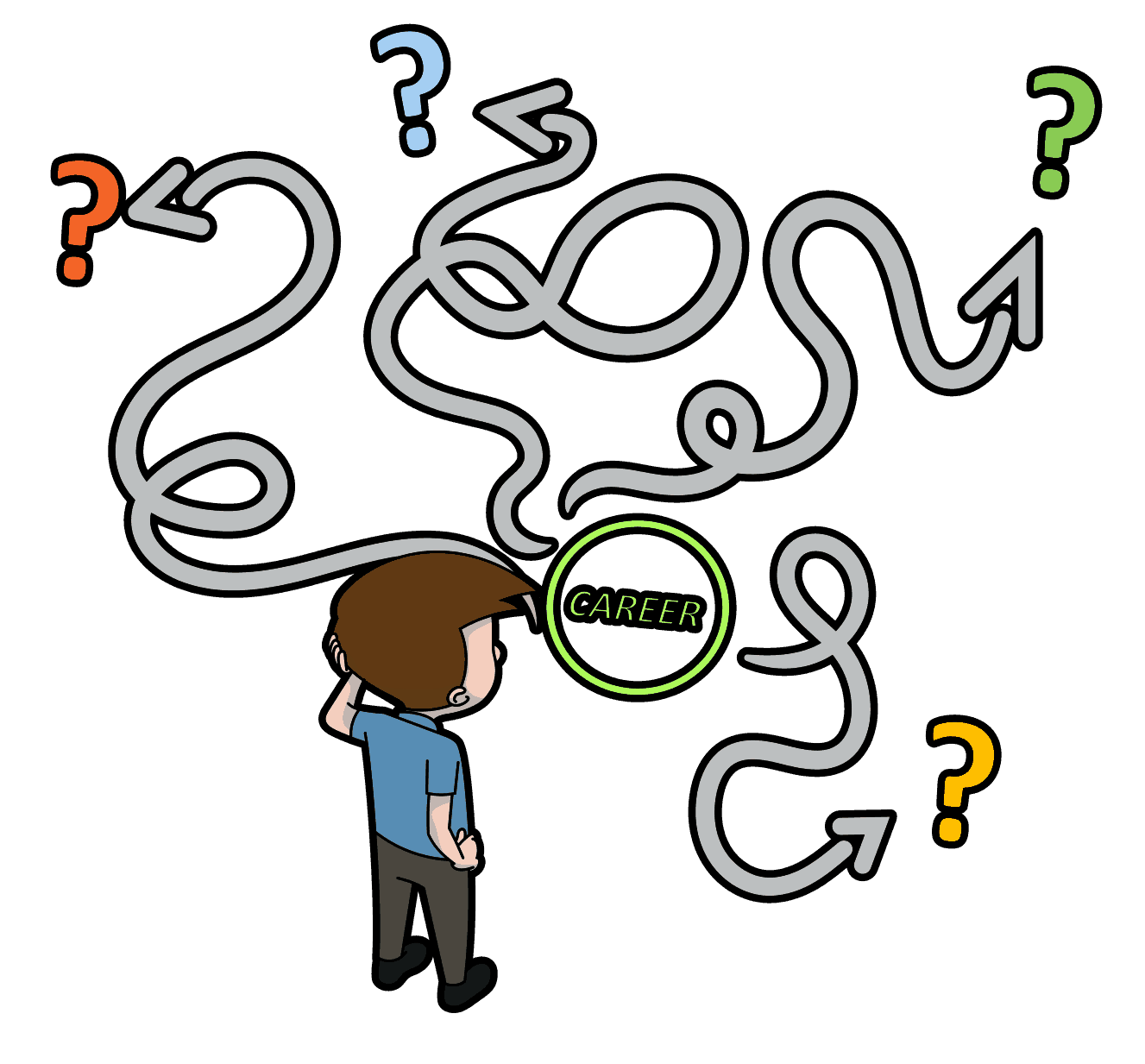
Why did I take up Radiology?
How is radiology as a career choice? What made you take up radiology over other branches?
This is a common question that a lot of undergraduate medical students have, especially after clearing their entrance exams (and securing a good rank without which getting into Radiology is quite difficult!). Every radiologist has different reasons.
If you are a radiologists reading this , please let us know what is your opinion about radiology as a career in this form : Why Radiology?
In this blog post, Dr. Devpriyo Pal, elaborates his reasons for taking up this elusive(?) branch!
Most medical students do not know about the subject of Radiology when they enter medical school in India. Till the year I graduated, 2016, the exposure to this wonderful subject in undergraduate medical courses in India is practically non-existent.
I took up MBBS idolizing my uncle who is a general surgeon and yet, here I am a first year resident in Radio-diagnosis trying to pen down the change in my perspective and life goals through the last 8 years that lead me to this point.
I have divided the entire journey into three parts to keep it concise.
Step One: At the end of MBBS:
I wanted to be a general surgeon because, as mentioned above, I idolized a general surgeon and I really liked the subject during my MBBS. I was very good at anatomy and always had good visuospatial skills and I knew I’d get great training from my uncle.
I was naive because the books gave me a very incomplete idea of the subject and I didn’t know what surgery training was all about. What I imagined myself doing as a surgeon was similar to how schools are shown in Karan Johar movies.
Step Two: At the end of the Internship:
I worked in ALL the departments for weeks and had gathered some life experience. I was a bit more mature than before. I realized that surgery was not my cup of tea; I don’t have the passion needed to sustain a budding surgeon through years of training – working for hours every day in the OR, being available till late for post-op care. I wasn’t very sure I had the required nerves for ice cold steadiness in the OR when a patient is bleeding out and the anesthesiologist panics.
I was also not enthusiastic about super-specialization and in this day and age, super-specialization after surgery is necessary.
Based on my internship experience I changed my preference to Pediatrics.
I liked the idea of managing various cases from ALL systems like neuro and cardio and an added bonus was the fact that super-specialization is not essential in Peds. (My HoD actively advised against it!) I love babies and children and thought it’d be cool to interact with them all my life.
I was still naive. I didn’t understand the difference between loving babies and playing with them and treating sick babies every day.
Step Three: At the end of my House-staffship or Preparation year:
During my House-staffship in Pediatrics, I realized that seeing sick babies die every day was not my cup of tea. I love seeing them healthy and laughing, and while I do have an excellent bedside manner I am not ruthless enough to do what is needed to save them. My feelings get in the way which makes me a bad pediatrician.
I also wanted to get rid of critical patient contact. I was scared of the rising violence against doctors and did not want to put myself in a position where I had to face a mob. This factor in addition to my discovery that I did not possess the constitution for pediatrics made me seek other options. So, I began to look for other subjects.
In summary, the criteria that I used to select or reject a subject is:
- End specialization (3-year course only)
- Less demanding lifestyle (No inpatient rounds)
- Little or no emergency
This is when I truly began to become attracted to Radiology. I found out that most NEET-PG toppers take radio-diagnosis and I became very curious. I began to understand what this subject was all about and during my preparation for the NEET-PG exam I realized that this subject is a great fit for me.
Below I have summarised the factors that most people consider when they think of a future in Radio-diagnosis.
- Passion/love: This is not a very common reason because most undergraduate doctors don’t know what radiology is and what it entails. Poor exposure in MBBS is the biggest reason behind this. Most of us find out about Radiology in our final years or internship when we start learning about NEET-PG and the top-ranked subjects.
Consequently, for most of us, a residency in Radiodiagnosis is like a successful arranged marriage – Love happens, but later!
- But I’ve still found people who have always loved the idea of Radiology – an opportunity to study ALL the subjects. You can talk to the gynecologists about the staging of cervical cancer and the next second you’re meeting your neurosurgeon friend discussing an MRI brain. You call your ortho colleague and tell him about the possibility of Pellegrini-Stieda disease from an X-ray and then you are doing the USG brain of a baby who’s trying to stuff the probe into his mouth. Who else apart from our pathology colleagues can boast of this vast range of cases that they deal with? The spectrum of your practice is the biggest across all subjects. The idea of specializing used to make me sad because I kind of wanted to be able to work with every type of patient. In hindsight, I have realized that it was a childish thought, but radiology gets me the closest to that idea.
- Money: It is silly to talk about radiology and not talk about money. Many doctors are attracted to this branch because of the possibility of earning a lot of money. The advantage that radiology offers is quick money more than a lot of money. Radiologists start earning right after their post-grad/MD and have a better salary compared to their colleagues from other disciplines. However, the money reaches a plateau after a few years (again, compared to other doctors). Radiologists earn more on an average but are nowhere near the top earners among doctors – that position has always been occupied by Super-specialised physicians, surgeons, and orthopedics. Of course, converting your practice into a business promises more monetary returns but that applies to every subject. I have talked more about it below.
- Lifestyle: A vast majority are attracted to this subject because of the easy and flexible lifestyle it offers. You work mostly in air-conditioned rooms, for a fixed amount of time every day with the option to work longer if you want. No emergency on calls (unless you elect to work as an emergency doctor), no ward visits, no 6 hour long procedures, no phone calls from patients at the middle of the night. You also get leave easily. It’s a 9 to 5 job which gives you the thrill of a clinical subject without the demanding lifestyle associated with it. Many doctors who also have other interests in life (like yours truly) want to take up radiology for this reason.
- Violence or the rather the lack of it: Many doctors nowadays are choosing this branch out of fear. Especially those doctors who aren’t very passionate about a clinical subject – they are the fastest to jump to a subject that has the least patient exposure. Diagnostic radiologists are usually not directly associated with critical care and are never the first contact doctors. Since the patients and their family don’t even know that radiologists exist, they usually don’t blame them for anything. They are thus sheltered from the mob violence which has recently plagued both government and private hospitals frequently. I’d be lying if I didn’t acknowledge the role of this particular reason in my decision.
- Super-specialization: Radiology is no longer only diagnostic, there’s a booming sub-specialty called Interventional Radiology. These radiologists choose more patient contact, recognition, money and even get the thrill of surgery. This is perfect for those people who want to have slices from both pies. You have easy Mondays where you perform USG examinations and interpret CT scans and then you have awesome Wednesdays where you save a patient by coiling the aneurysm in their head or by embolization of the uterine artery. It’s very exciting!
- Business/Private centers: I personally do not think many doctors take up this subject with the sole intention of establishing their own centers unless they are a family of radiologists or are super-rich. Mostly because it takes a LOT of capital to do this. Apart from this, you need a huge space and need to employ technicians and other people and all said and done, it takes a level of entrepreneurship that not everyone has. It’s not easy but there are people who consider this aspect of the subject and there are several successfully radiologists who are running their own centers.
So, there you have it. The story of how I ended up with radiology!
Thanks, Dr. Dev for that awesome post. My reasons for taking up radiology were somewhat similar and I had faced similar dilemmas before taking up radiology. I was always a medicine person a “Harrisons– bhakt!”.
In the Indian context, it is often difficult to choose what branch we want to specialize as that depends on what rank we get, rather than what branch we like!
The system is flawed and there is nothing much we can do about. The number of undergraduate medical seats are increasing while those for post-graduation are limited. There are a few who pursue their dream for the specialty of their choice but there a lot of other factors which decide what branch does medical graduate pursue.

Coming back to my story. I got a good rank and I was confused between medicine and Radiology. The lack of emergency working hours and relatively relaxed lifestyle is what made me think about radiology as a career choice. But as Dr. Dev pointed out we never have the exposure to Radiology during our UG postings so it is difficult to judge how working in Radiology actually feels like. I always advise people to follow what I did. I went to the Radiology department at KEM (where I did my undergraduation) and visited a few private diagnostic centers to observe what radiologists actually do. If that excites you and you can imagine doing that EVERYDAY for the rest of your life, then that’s it! You do not need to seek advice from anyone else :).
The whole idea of seeking to advise from seniors for post-graduation is flawed as one will always have a preference for his own branch, that is a basic human tendency. Remember what did the senior pursuing medicine say about Radiology? ” It is a non-clinical/ para-clinical branch”. Is it? I would definitely disagree, as would most radiologists. Radiology is as clinical as you want it to be. As Dr. Dev mentioned, you need to apply clinical features from each specialty to come to the right diagnosis. There is always Interventional Radiology (IR), for those who are inclined towards more patient interaction and surgery.
As a Radiologist, you need to be the jack of all trades, and the master of some!
The point I would like to stress is that be it any branch, you should always spend some time working in that department to get an idea of what exactly it is about.
So is Radiology the best branch? No. It is definitely not. The best branch is the one that you excites YOU the most. Radiology has its own issues. Radiologists definitely earn significantly more when they start their careers, but there is a cap to what they can earn, unlike their surgery and medicine colleagues. There is always the option of starting your own center, but the stringent PC-PNDT rules and large capital required to deter a lot of radiologists from starting their own centers. Also managing a center involves more of management and less of radiology. There is some saturation in metro cities owing to a large number of radiologists moving to settle in these. There are nephrologists, gynecologists and neurosurgeons and cardiologists who want to have a part of the radiology “pie” The advent of teleradiology makes matter worse as the remuneration rates for these are paltry. There is artificial intelligence coming up as well. Some of our colleagues are headed to pursue havens outside India, like the UK / Singapore (via the FRCR) or North America (via Fellowships/ USMLE). So the grass is definitely not green on this side of radiology, I would rather say its “gray” like other things in radiology.
Do I repent taking up radiology? Not at all. I love what I do and I am sure most of the radiologists you talk to would agree.
To all my radiology friends: Why did YOU take up radiology? Do tell us in the comments section so that medical graduates get more insights into this elusive (still?) branch!
And to medical graduates, fresh after securing single/double digit rank in the NEET-PG, welcome to Radiology!
Before I end this post, here are more by Dr. Naveen Sharma (theradiologistpage) reasons to take up Radiology!
Here is what Dr. Sumer Sethi from DAMS has to say:
Here are a few of PG toppers talking about radiology as a career choice:
Here are reviews from a few RCR trainees about radiology as a career:
Check out a similar post from our friends in the UK: SRT: Why Radiology?
Here is what KevinMD says about radiology as a career choice: Kevin MD Why Radiology?
This subbredit also has also gives a good insight into why radiologists chose this branch:
Head on to the RadioGyan home page for radiology resources!
Image credit: Clip Art by Vector Toons [CC BY-SA 4.0 (https://creativecommons.org/licenses/by-sa/4.0)]






http://thoughtfulradiologist.blogspot.com/2017/10/why-radiology.html
This is what I wrote a couple of years ago about my career choice as Radiologist
I think we all are on the same page and each of our stories resonates pretty much
😊😊
The TYPE of patient exposure is different. Radiology is an applied branch.
Initial history , examination just as any other.
Followed by what we call examination protocolling.
The settings of the modality are set for evaluation of a particular clinical question. A common misconception is that a patient is put in a scanner and images come out ready to be interpreted. It is anything but that.
Followed by protocolling is post processing.Raw data and basic images are digitally processed to obtain multiplanar images, intensity projections , virtual rendered images for evaluation.
Certain clinical scenarios like renal Doppler , CT angiography for aortic aneurysms require calculation of distances and ratios for evaluation.
Followed by this is comparison with previous exams for old /new pathology , response /progression/recurrence , staging/classification.
Then comes the first draft of the “report “ which has been the only face of Radiology – for far too long I believe. Pertinent history, technique and salient imaging findings are described – in a style which answers the clinical question at hand.The final part of the report contains the radiological opinion , staging /classification, suggestions for further investigations as necessary.
All scans are ideally monitored in person by the radiologist. Most non routine radiological examinations are performed by the radiologist himself /herself. I can vouch for that.
Emergency radiological findings like trauma / infarct /CVA / obstetric emergencies are communicated by phone to the attending physician /surgeon. My colleagues and seniors will vouch for that.
For those who claim that radiology is not a patient contact specialty – There are people of the radiological fraternity who’ve caught pulmonary tuberculosis – a disease of CLOSE AND PROLONGED CONTACT. The scars of battle with disease are the same, of not more.
I have immense respect for every specialty out there and the spectrum of work done. But this is my two cents for a specialty I’ve given my blood and sweat to.
Questions are welcome.
Excellent write up Dr. Sunil ! Completely agree !!
If radiologists can’t earn crores then why toppers are choosing it??
Earning 2-3 lakhs per month is not a big deal today, MBAs, engineers, haldiram shop owners, everyone is earning that much.
I want to become a doctor who cures patients and earn crores, I am confused between Medicine, pediatrics, obstetrics and gynecology and radiology.
Please help.
Main reason why toppers take radiology isn’t because they earn more. It’s because of the lifestyle. You can earn lakhs in obg , surgery but your quality of life will be sacrificed .
What did you take up finally?
Considering lifestyle and earnings , Dermatology is probably comparable to RADIOLOGY.
So why do most of the toppers choose Radiology over Dermatology ??
Because u have to look dirty skin in morning for derma but not in radio
Probably because , superspeciality option not there in derma and strating salary also lesser compared to radiology
Completely agree sir … 👍🏻👍🏻
🙂
One of the best articles I have come across….
Thank you Anulatha for your kind words. Glad you liked the article.
– Amar.
What Is Better MLT or Radiology and i completed my bachelor is microbiology so how I can take admission in radiology ?…
Hi Vatsal
You will have to finish undergraduation i.e. MBBS (via NEET) and then attempt the PG NEET exam and score well to get into radiology.
Great read!! Thanks for sharing such a great blog, blog like these are really helpful.
Great read!!! Thanks for sharing such a great blog. These blogs are really helpful.